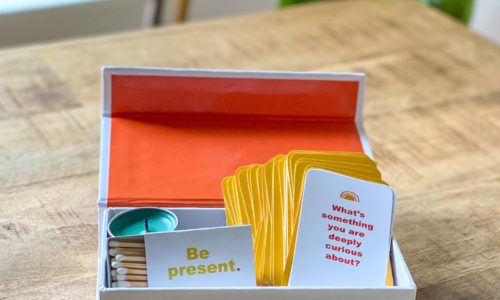What makes us do what we do? Is changing behavior simply a matter of changing the incentives? What drives a child to work hard on her own? Are certain children born with a natural work ethic or is it something learned?
At Acton we have turned upside down most of the traditional incentive measures such as grades, attendance awards, and teacher directives. I am asked often about how we can possibly think that children will choose work hard without being told (mandated by an adult) to do so.
I’ve been fascinated by watching our young Eagles rise to the call of self-directed, independent learning.
My fascination with incentives has become more urgent. If we can unlock the question, “How do you get your students to work so hard on their own?” then we can effectively free children around the globe from the limiting experience of adult-dependent learning.
To understand this better, I decided to put down the books and go straight to the experts. I asked the Acton Eagles: Why do you choose to work hard here at school?
The answers fell into three major categories:
Because I am on a hero’s journey. (i.e., the culture of Acton)
My friends are working hard and this makes me work hard. (i.e., the community at Acton)
Rewards. (Rewards they specifically noted: the built-in rewards of the online programs, the good feeling of achieving a goal you have set; the actual fun of working hard, and recognition in public through competition, celebrations and exhibitions.)
Here are a few quotes from the students answering the question, “Why do you choose to work hard?”
“I know I am doing something meaningful with my life and the fact that everything we do here helps us on our hero’s journey and find our calling, and we learn things we will actually use and need in life.”
“What motivates me to work hard is how hard everyone else works.”
“It is rewarding when you finish something.”
“You work hard if you are an Eagle.”
“It’s fun because when you finish goals you feel good about yourself.”
“I have great friends who motivate me to work hard.”
“I get to work at my own pace.”
“I have dreams.”
“I am inspired by other people when they succeed.”
“I want to work hard because we are not forced to do it. If we were forced to work hard, I wouldn’t want to. Also, the way we learn makes me want to. Being taught isn’t as fun as learning on your own.”
At Acton, we spend the first 3-4 weeks of school building community. Who are we? What is a hero’s journey? How will we hold each other accountable? Are you ready to sign the contract – our covenant to ourselves and each other?
This foundation of knowing “what it means to be an Eagle” then gets the tangible structure of goal setting and tracking. Only then does the real work begin.
At home, our family plan and our definition of “what it means to be a Sandefer” has been a motivating factor in decision-making about how we behave, how we spend our time, talents and treasure. We use it to hold each other accountable. When Charlie or Sam sees me frustrated and about to give up on a project, one of them is bound to say, “but Sandefers don’t give up.”
The carrot we are choosing to offer at Acton is a belief held tightly by clear boundaries: You have genius within you and you will change the world. We will help you with our structure, guides and community – but it’s your choice. Take it or leave it. We will hold you accountable to your choice.
Purpose, choice, accountability. I’m sure there are more experienced and scholarly people who will correct me and say it is much more complicated than that. But for now, I’m going to trust in my experts. I have their words written on index cards proclaiming their reasons and I witness them working with integrity each day. And my research will continue.
In 4 years, we have had only one student simply say, “I am going to choose not to work. I am not ready for this.” The Acton method didn’t light this person’s soul fire – yet. But I am willing to place my life on this: When there is meaning to learning and it touches a person’s heart deeply, the choice to work hard will be a resounding, “Yes.” And why not? It’s so much fun.


